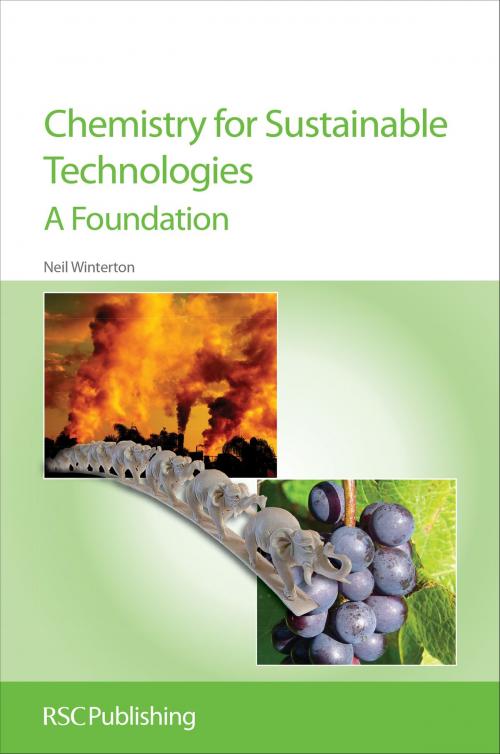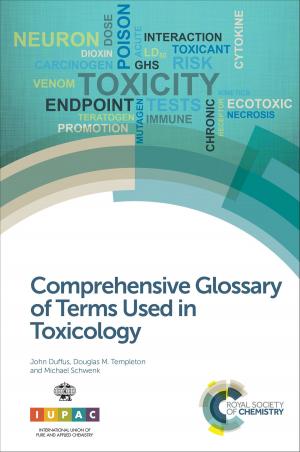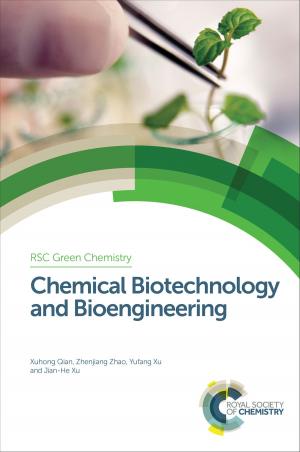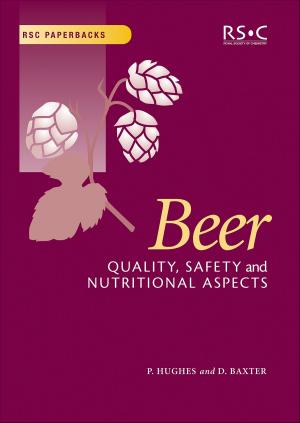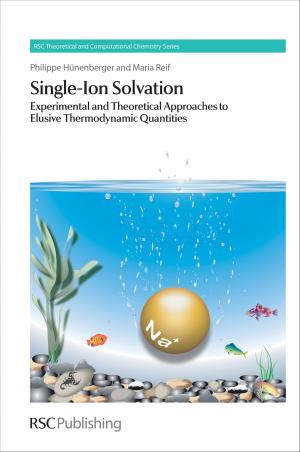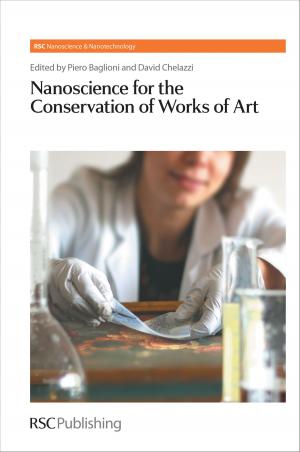Chemistry for Sustainable Technologies
A Foundation
Nonfiction, Science & Nature, Technology, Engineering, Chemical & Biochemical, Science, Biological Sciences, Environmental Science| Author: | Neil Winterton | ISBN: | 9781782626039 |
| Publisher: | Royal Society of Chemistry | Publication: | November 9, 2015 |
| Imprint: | Royal Society of Chemistry | Language: | English |
| Author: | Neil Winterton |
| ISBN: | 9781782626039 |
| Publisher: | Royal Society of Chemistry |
| Publication: | November 9, 2015 |
| Imprint: | Royal Society of Chemistry |
| Language: | English |
The importance of reconciling the continuing needs of humankind with the protection of the environment and the earth's ability to provide for those needs is now better recognised. Chemistry and chemical technology play an important role in this, though not on their own. Interdisciplinarity and multidisciplinarity are, therefore, critically important concepts. This book, the first of its kind, provides an interdisciplinary introduction to sustainability issues in the context of chemistry and chemical technology. The prime objective of this book is to equip young chemists (and others) to better appreciate, defend and promote the role that chemistry and its practitioners play in moving towards a society better able to control, manage and ameliorate its impact on the ecosphere. To do this, it is necessary to set the ideas, concepts, achievements and challenges of chemistry and its application in the context of its environmental impact, past, present and future, and the changes needed to bring about a more sustainable yet equitable world. Covering aspects assumed, barely addressed or neglected in previous publications - it puts Green Chemistry in a much wider (historic, scientific, technological, intellectual and societal) context and addresses complexities and challenges associated with attitudes to science and technology, media treatment of scientific and technological controversies and difficulties in reconciling environmental protection and global development. While the book stresses the central importance of rigour in the collection and treatment of evidence and reason in decision-making, to ensure that it meets the needs of a wide community of students, it is broad in scope, rather than deep. It is, therefore, appropriate to a wide audience including practising scientists and technologists.
The importance of reconciling the continuing needs of humankind with the protection of the environment and the earth's ability to provide for those needs is now better recognised. Chemistry and chemical technology play an important role in this, though not on their own. Interdisciplinarity and multidisciplinarity are, therefore, critically important concepts. This book, the first of its kind, provides an interdisciplinary introduction to sustainability issues in the context of chemistry and chemical technology. The prime objective of this book is to equip young chemists (and others) to better appreciate, defend and promote the role that chemistry and its practitioners play in moving towards a society better able to control, manage and ameliorate its impact on the ecosphere. To do this, it is necessary to set the ideas, concepts, achievements and challenges of chemistry and its application in the context of its environmental impact, past, present and future, and the changes needed to bring about a more sustainable yet equitable world. Covering aspects assumed, barely addressed or neglected in previous publications - it puts Green Chemistry in a much wider (historic, scientific, technological, intellectual and societal) context and addresses complexities and challenges associated with attitudes to science and technology, media treatment of scientific and technological controversies and difficulties in reconciling environmental protection and global development. While the book stresses the central importance of rigour in the collection and treatment of evidence and reason in decision-making, to ensure that it meets the needs of a wide community of students, it is broad in scope, rather than deep. It is, therefore, appropriate to a wide audience including practising scientists and technologists.
